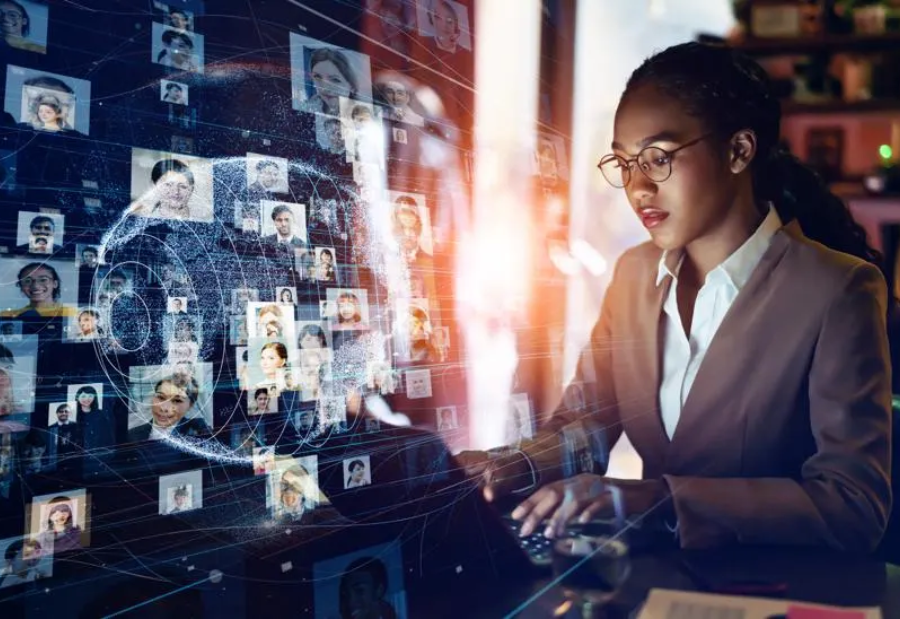The workplace of tomorrow is not just on the horizon—it’s already taking shape. With rapid advancements in artificial intelligence, automation, robotics, and digital platforms, technology continues to transform how we work, what we work on, and who works. The ripple effects of these innovations are redefining workforce structures, skill demands, and even the concept of work itself.
At The Mainstream, the shift isn’t just technological—it’s deeply human. The evolution of the modern workforce is about creating synergy between digital efficiency and human creativity.
Here’s a closer look at how technology is expected to continue reshaping the workforce in the years ahead:
1. AI and Automation Will Redefine Job Roles, Not Just Replace Them
A common fear surrounding automation is job displacement. While certain repetitive or rules-based tasks will be automated, many roles will evolve rather than disappear. AI is expected to augment human capabilities, taking over mundane activities and freeing up time for higher-value work.
Example: In healthcare, AI is assisting with diagnostics and image analysis, but human doctors are still needed for empathy, decision-making, and communication.
Prediction: By 2030, we’ll see a rise in “human-AI collaboration” jobs—roles that require people to work alongside AI tools to drive decisions, improve customer experiences, and optimize operations.
2. Soft Skills Will Become Core Skills
As machines handle more technical or manual tasks, soft skills like emotional intelligence, critical thinking, adaptability, and communication will become even more valuable. In a hybrid or remote-first environment, the ability to collaborate across digital platforms and manage virtual relationships is vital.
Prediction: Employers will increasingly prioritize soft skills during hiring, training, and upskilling initiatives—making them a key differentiator for workforce success.
3. The Rise of Remote, Hybrid, and Global Workforces
The pandemic triggered a massive shift to remote work, but it also laid the foundation for a more location-agnostic, distributed workforce. With collaboration platforms, cloud technologies, and virtual workspaces maturing, the global talent pool is now more accessible than ever.
Prediction: Companies will continue to adopt “talent without borders” strategies—hiring the best candidates regardless of geography, enabled by asynchronous workflows and cloud-based collaboration.
According to insights from The Mainstream, hybrid models are no longer an experiment—they’re the new standard, reshaping recruitment, culture, and productivity expectations worldwide.
4. Gig and Freelance Economy Will Continue to Expand
Platforms like Upwork, Fiverr, and Toptal are making freelance and project-based work more viable for both workers and employers. As more professionals seek autonomy, and companies look for flexible ways to scale, the gig economy will flourish.
Prediction: Traditional employment models may give way to “blended teams”—a mix of full-time employees, freelancers, contractors, and even AI-powered bots working on the same projects.
5. Continuous Learning Will Be a Career Imperative
The half-life of skills is shrinking. Today’s in-demand skill can become obsolete within five years or less. To stay relevant, workers will need to continuously upskill and reskill—whether through online platforms, bootcamps, certifications, or corporate learning initiatives.
Prediction: Learning will become a daily habit, with microlearning, personalized AI tutors, and immersive AR/VR training becoming standard in many organizations.
6. Ethical Tech and Digital Wellbeing Will Matter More
As tech continues to permeate the workplace, ethical considerations around data privacy, surveillance, algorithmic bias, and employee mental health are coming into focus.
Prediction: Companies will need to strike a balance between digital productivity and human-centered policies—ensuring tech is used responsibly and sustainably.
7. New Job Categories Will Emerge
Technological change always creates new roles, even as it renders others obsolete. Just a decade ago, roles like cloud architect, prompt engineer, and metaverse strategist didn’t exist.
Prediction: Expect a surge in cross-functional roles that blend tech fluency with domain expertise—like AI ethicists, digital twin designers, data storytellers, or climate tech specialists.
Conclusion: The Future Is Human-Plus-Tech
The future of work isn’t about humans vs. machines—it’s about humans working with technology to unlock new possibilities. Organizations that invest in digital transformation, workforce upskilling, and inclusive innovation will be better positioned to thrive.
The Mainstream believes that organizations investing in digital transformation, upskilling, and inclusive innovation will lead in both performance and purpose.
For individuals, the challenge is to stay adaptable, embrace lifelong learning, and develop the unique human traits that machines cannot replicate.
As technology continues to evolve, so too will our workplaces—becoming more agile, diverse, and interconnected than ever before.
Also read: Viksit Workforce for a Viksit Bharat
Do Follow: The Mainstream formerly known as CIO News LinkedIn Account | The Mainstream formerly known as CIO News Facebook | The Mainstream formerly known as CIO News Youtube | The Mainstream formerly known as CIO News Twitter |The Mainstream formerly known as CIO News Whatsapp Channel | The Mainstream formerly known as CIO News Instagram
About us:
The Mainstream formerly known as CIO News is a premier platform dedicated to delivering latest news, updates, and insights from the tech industry. With its strong foundation of intellectual property and thought leadership, the platform is well-positioned to stay ahead of the curve and lead conversations about how technology shapes our world. From its early days as CIO News to its rebranding as The Mainstream on November 28, 2024, it has been expanding its global reach, targeting key markets in the Middle East & Africa, ASEAN, the USA, and the UK. The Mainstream is a vision to put technology at the center of every conversation, inspiring professionals and organizations to embrace the future of tech.




